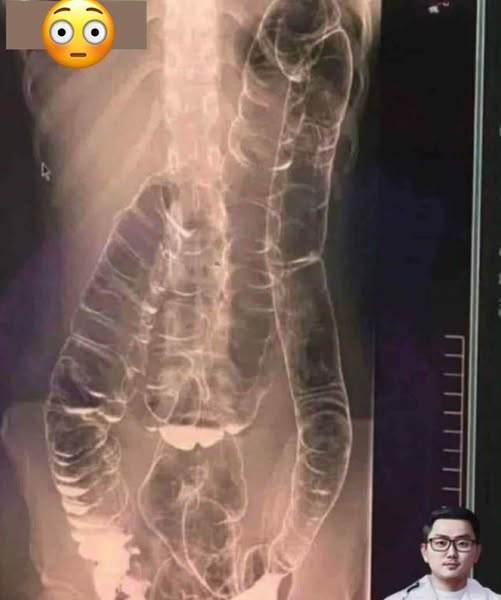Chronic Constipation: A Silent Threat to Digestive Health
Chronic constipation, though often brushed aside as something trivial or just a passing inconvenience, is far more serious than many people realize. While most individuals think of it as nothing more than difficulty in bowel movement or a few days of discomfort, the condition can, if neglected, lead to dangerous, even life-threatening health consequences. A striking real-life case demonstrates this hidden danger: a young woman, who ignored her persistent constipation for too long, experienced such extreme colon distension that her colon began expanding upward toward her chest cavity. This not only caused excruciating discomfort but also put immense pressure on her internal organs, making her condition critical. Stories like this serve as a reminder that what may seem like a minor digestive issue can quickly spiral into a medical emergency.
The risks associated with prolonged constipation extend well beyond discomfort. Over time, toxins that would normally be eliminated can build up in the body, creating additional health concerns. Constant straining can lead to hemorrhoids, which are painful and difficult to treat, while hard or infrequent stools can result in anal fissures—small tears that cause sharp pain and bleeding. Even more alarming is the potential for bowel obstruction, where stool becomes so compacted that it blocks the intestines entirely. In the long term, chronic constipation has been linked with an increased risk of developing colon cancer, underscoring the importance of addressing the problem early rather than dismissing it as harmless.
Fortunately, in most cases, constipation can be prevented or significantly improved through natural lifestyle adjustments. Increasing dietary fiber is one of the most effective strategies, as fiber adds bulk to stool and promotes smoother bowel movements. Staying properly hydrated throughout the day is equally essential, since water helps soften stool and keeps the digestive system functioning efficiently. Regular physical activity stimulates intestinal activity and prevents sluggish digestion, while developing a consistent bathroom routine trains the body to regulate itself more effectively. Reducing the intake of heavily processed foods—which are often low in fiber and high in unhealthy fats—is another critical step toward maintaining a healthy digestive balance. Additionally, gentle natural remedies, such as drinking herbal teas known to support digestion or taking magnesium supplements, can provide extra relief without harsh side effects.
However, not all cases of constipation should be managed at home. If constipation persists for several days despite self-care, or if it is accompanied by alarming symptoms such as severe abdominal bloating, nausea, vomiting, or the presence of blood in the stool, immediate medical consultation becomes necessary. These warning signs may indicate more serious underlying conditions that require professional evaluation and treatment.
Ultimately, maintaining digestive health is about adopting small but consistent habits that, over time, create lasting benefits. By giving proper attention to diet, hydration, movement, and timely medical care, one can prevent the complications of chronic constipation and safeguard long-term well-being. What begins as a seemingly minor issue should never be underestimated, for ignoring the body’s signals today may lead to profound health consequences tomorrow.
